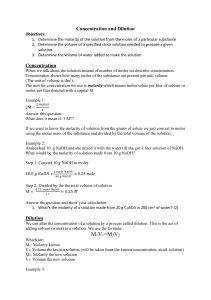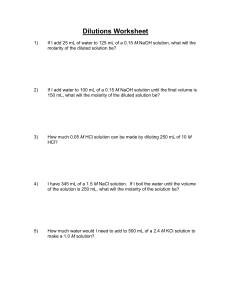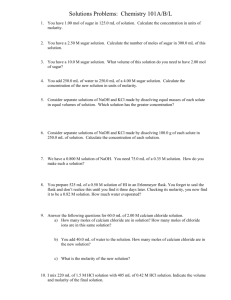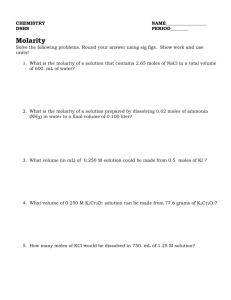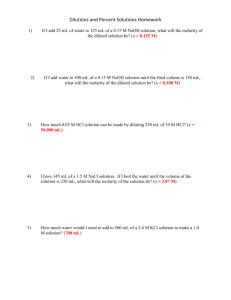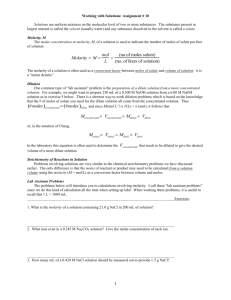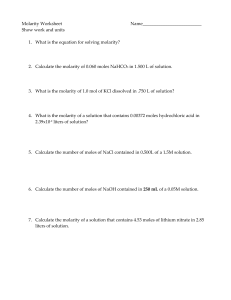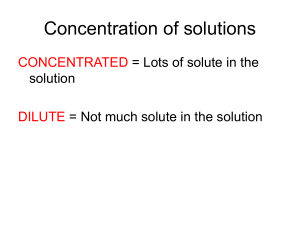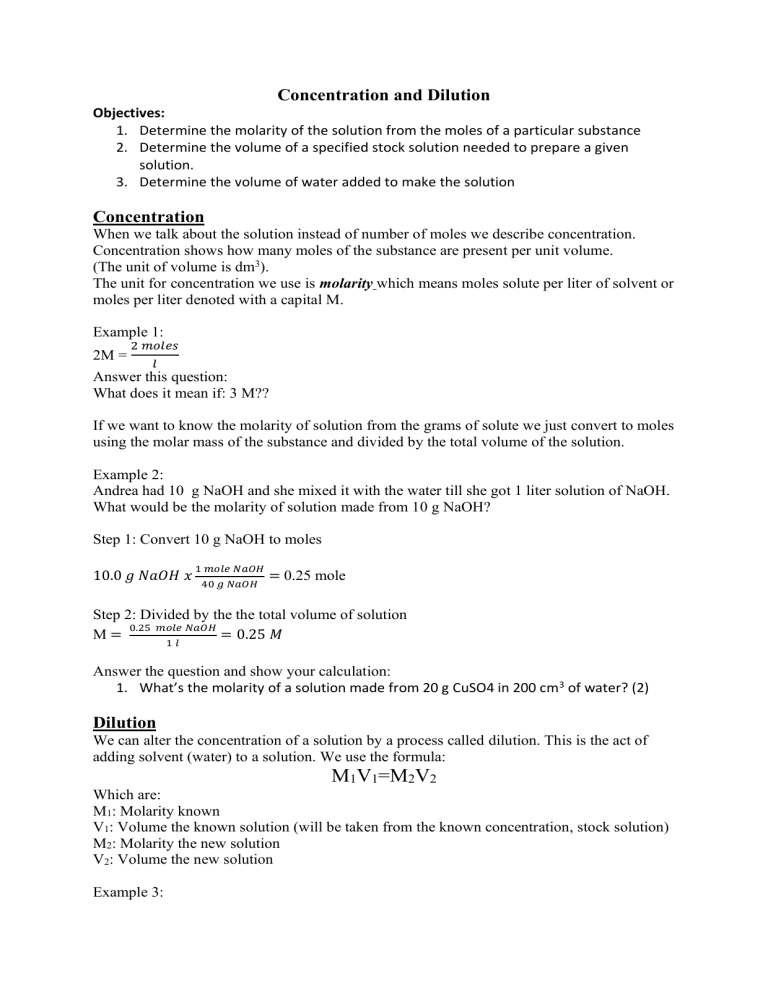
Concentration and Dilution Objectives: 1. Determine the molarity of the solution from the moles of a particular substance 2. Determine the volume of a specified stock solution needed to prepare a given solution. 3. Determine the volume of water added to make the solution Concentration When we talk about the solution instead of number of moles we describe concentration. Concentration shows how many moles of the substance are present per unit volume. (The unit of volume is dm3). The unit for concentration we use is molarity which means moles solute per liter of solvent or moles per liter denoted with a capital M. Example 1: 2M = 2 𝑚𝑜𝑙𝑒𝑠 𝑙 Answer this question: What does it mean if: 3 M?? If we want to know the molarity of solution from the grams of solute we just convert to moles using the molar mass of the substance and divided by the total volume of the solution. Example 2: Andrea had 10 g NaOH and she mixed it with the water till she got 1 liter solution of NaOH. What would be the molarity of solution made from 10 g NaOH? Step 1: Convert 10 g NaOH to moles 10.0 𝑔 𝑁𝑎𝑂𝐻 𝑥 1 𝑚𝑜𝑙𝑒 𝑁𝑎𝑂𝐻 40 𝑔 𝑁𝑎𝑂𝐻 = 0.25 mole Step 2: Divided by the the total volume of solution 0.25 𝑚𝑜𝑙𝑒 𝑁𝑎𝑂𝐻 M= = 0.25 𝑀 1𝑙 Answer the question and show your calculation: 1. What’s the molarity of a solution made from 20 g CuSO4 in 200 cm3 of water? (2) Dilution We can alter the concentration of a solution by a process called dilution. This is the act of adding solvent (water) to a solution. We use the formula: M1V1=M2V2 Which are: M1: Molarity known V1: Volume the known solution (will be taken from the known concentration, stock solution) M2: Molarity the new solution V2: Volume the new solution Example 3: To what volume would you need to dilute to make 1.95 M Ca(OH)2 from 5.85 M Ca(OH)2 with a 0.2 L solution. Solution: M1V1=M2V2 5.85 x 0,20 = 1.95 x V2 V2= 0.60 L Answer the question and show your calculation: 1. If you dilute 200 cm3 of a 1.6 M solution of KCl to 1.0 dm3, a. determine the new concentration of the solution. (2) b. explain how do you make the new solution/new concentration in the lab. (2) 2. How many milliliters of 2.0 M barium sulfate solution must be added to 160 mL of water to achieve a 0.20 M barium sulfate solution? (2)
